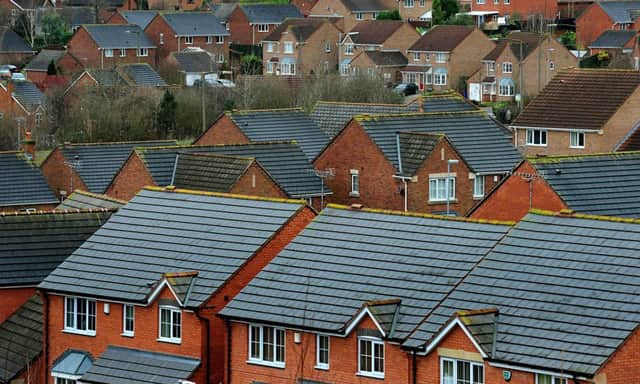Rugby council tax rises for first time in seven years


The amount residents will be asked to pay will rise by £5 per year for a band D property, to £131.42.
The amount that Rugby Borough Council charges council tax payers has been frozen in recent years, though the council gave residents a one-off rebate of £3.83, or three per cent, in 2014.
Advertisement
Hide AdAdvertisement
Hide AdThe freeze has been equivalent to a real-term cut of around 18 per cent, or £124 per household.
Announced at a meeting of the council held on Tuesday (February 23), were:
• An additional one-off investment of £150,000 in Rugby town centre, to be funded by business rates paid by retailers at the Elliott’s Field and Technology Drive shopping parks.
• A reduction of the council’s senior management team, reducing the number of Executive Directors from two to one and the number of Heads of Service from six to four, giving ongoing full-year savings of £200,000 from 2017/18.
Advertisement
Hide AdAdvertisement
Hide Ad• £100,000 to support one-off investment in digitalisation and measures that will generate income and increase efficiency in future years, helping the council become financially self-sufficient by 2020.
Speaking at the meeting, Cllr Michael Stokes, Leader of Rugby Borough Council, said: “Rugby Borough Council has made the decision to make sure that Rugby is well and truly open to business, with policies and procedures that help them to deliver economic growth.
“That’s why in 2016, again we are committing £150,000 to benefit the town centre economy. Rugby’s success in attracting new developments at Elliott’s Field and Technology Drive will directly benefit our town centre, with the re-investment of the business rates we receive from these out of town developments.”
Speaking about investment in digital services and income generation, Cllr Stokes said: “This council already has a good track record of generating income. If we want to protect our services and become financially self-sufficient, we must enhance our income streams and explore new ways and new opportunities of generating income.
Advertisement
Hide AdAdvertisement
Hide Ad“To that end, I am also committing £100,000 to allow this council to transition services, explore new opportunities and enhance existing services and opportunities. We will focus on using IT and digitalisation to deliver services, whilst identifying new and maximising existing revenue streams.”
At the conclusion of the meeting Cllr Stokes added: “As leader of this council I am very mindful that the council is funded by taxpayers and must always spend their money wisely. No-one welcomes a tax rise, but I hope that residents will agree that at less than eight pence in every pound of council tax collected, Rugby Borough Council offers exceptional value for money.
“While other councils have found that they have had to cut services, prudent financial management over many years has meant that we have been able to improve services while serving a growing population and becoming increasingly efficient.”
Around 76 per cent of resident’s council tax goes to the county council to pay for expensive services such as highways and education.
Advertisement
Hide AdAdvertisement
Hide AdThe rest goes to the police, to parish councils or the town area special expense.
The county council share will increase by £70.83 to £1249.02 and the police share will increase by £7.42 to £191.98. Including the county council and police share of the council tax, the average amount payable for a Band D property in the Rugby town area will be £1,641.27.